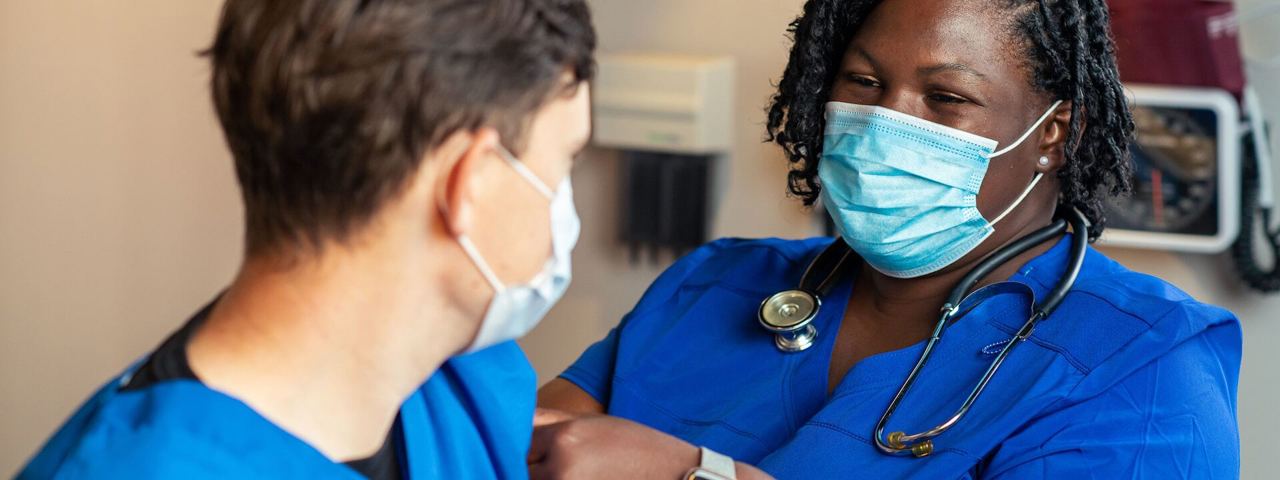
Health Literacy for Schools
In 2020/2021, Library and Knowledge Services Staff from Royal Berkshire NHS Foundation Trust and Berkshire Healthcare NHS Foundation Trust collaborated on a project to develop and share health literacy training and supporting information aimed at children and young adults in local schools.
Health literacy levels have a huge impact on how individuals manage their health. In England 43% of the population are unable to understand health information made up of words, and this increases to 61% when numbers are involved.
We approached schools across Berkshire in late 2020 and investigated the pupils’ health literacy and information skills using a survey and discussion sessions. We then identified age-appropriate resources and created teaching packs focused on evaluating resources, preparing for health appointments, and using the right services.
As a result of this work, we won the Information Literacy Award at LILAC Conference 2022. The resources we created are freely available for you to view and use below.
Schools provide a key platform for promoting health literacy in young people and it's important to provide basic health information, as well as teach skills for children and young people to become empowered to take responsibility for their health. This can be done by improving their knowledge and supporting their ability to seek help.
These pages will provide fun and educational activities and resources for teachers, parents and leaders of children's organisations. They will provide a starting point for talking about health literacy and health and wellbeing, as well as provide further information, references and articles for a deeper understanding.
What is Health Literacy?
“The degree to which individuals can obtain, process and understand the basic information and services they need to make appropriate health decisions” Institute of Medicine
Health Literacy Teaching Resources
Teaching Packs
- School health literacy pack information
- Health literacy for schools part 1 – Evaluating Information - Lesson plan
- Health literacy for Schools part 1 - Evaluating Information - Slides
- Health literacy for schools part 2 – Practical Skills - Lesson plan
- Health literacy for schools part 2 - Practical skills - Slides
- Health Literacy Postcards
Externally Created Lesson Plans and Activities
Analysing health websites
The internet is a great resource but there is so much information on there, it's easy to find advice that isn't reliable and following health information that hasn't been verified can be really dangerous. As children are becoming much more adept and comfortable using and searching for information on the internet, they should learn about weighing up the information they find on health websites and deciding whether it is a good source or not.
This activity from GDHR (Growing and Developing Healthy Relationships, Department of Health, Government of Western Australia) encourages children to discuss what being safe online means, search for health information and looking at the site's credentials. All you need is a computer, a ball of wool, and the two handouts from the site below.
Analysing health related websites activity
Other activities
- Digital Me activity
- How reliable is that website?
- Internet information
- Think and protect yourself and others online
- Finding reliable info on the web
Useful websites
- Great Ormond Street Hospital health dictionary - There are lots of tricky medical words that doctors can use to explain what's going on which can be very confusing. Great Ormond Street Hospital in London has produced a Health Dictionary so if you don't know what a medical or health word means, you can find a jargon-free explanation to hundreds of words!
- Children’s’ guides to hospital - The Royal Children's Hospital Melbourne have produced a large number of videos that introduce children to areas, procedures and tests that they might experience in a hospital. They have also produced videos around COVID-19 and explain in child friendly terms why everyone is wearing a mask.
- The Science Kids website contains lots of games, quizzes, puzzles, facts and project ideas to teach children about all aspects of health. As well as activities for children, there are also lesson plans and worksheets for teachers, ideas for parents and a whole host of free resources for anyone interested in learning about the human body or other science subjects online. For example, the Skeletons and Bones Game.
- Sense about Science empowers young people to ask, ‘What is the evidence behind this claim?’ It aims to help them develop the skills and confidence needed to critically assess claims they come across online and reduce the spread of false information. They offer a handy Evidence Hunter activity pack.
More Resources
- Diagrams to help children understand the human body
- Healthy Eating
- Helplines and useful resources
- Information for 16 to 18 year olds
- Keeping Clean
- Keeping Fit
- Mental Health
